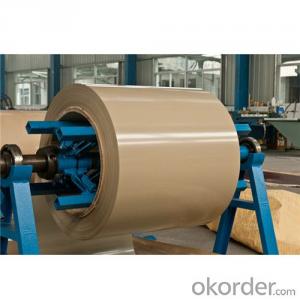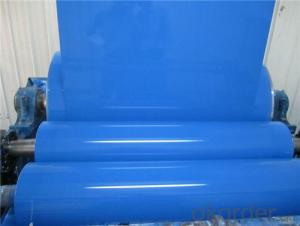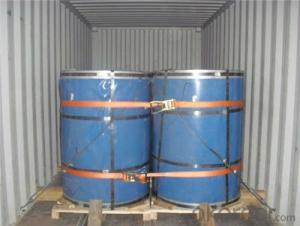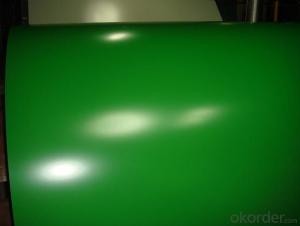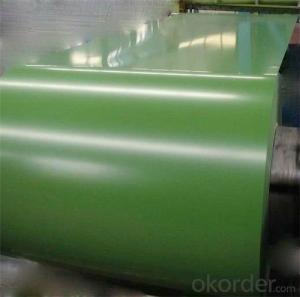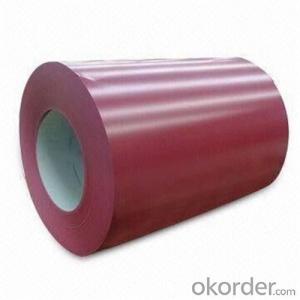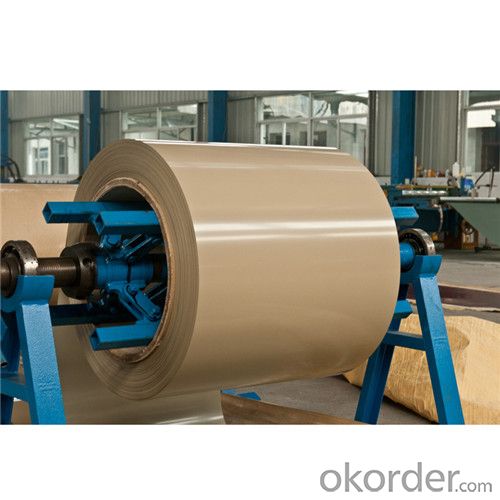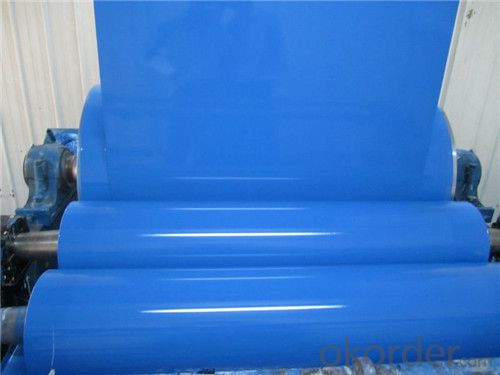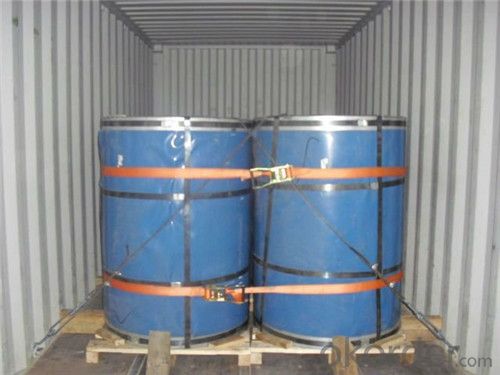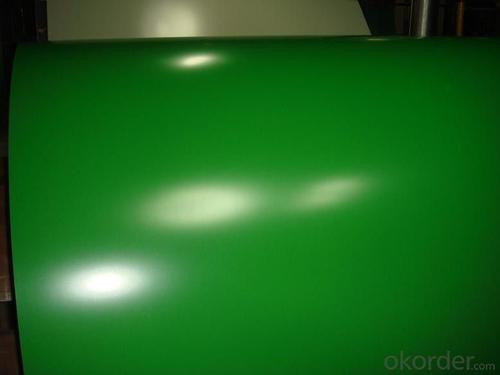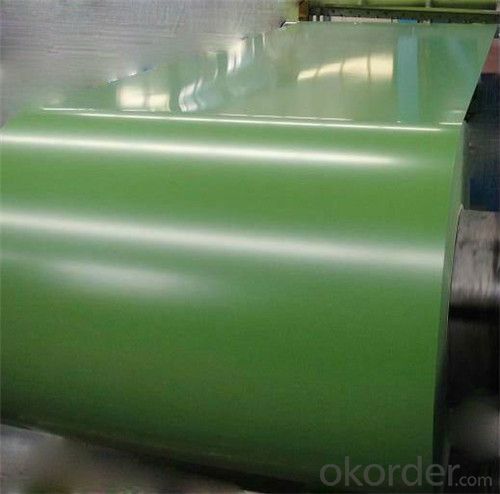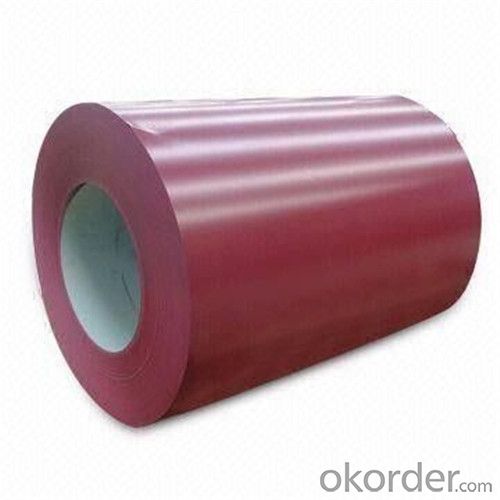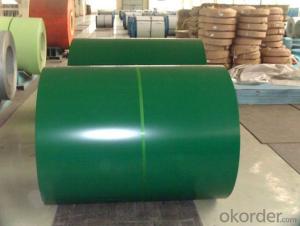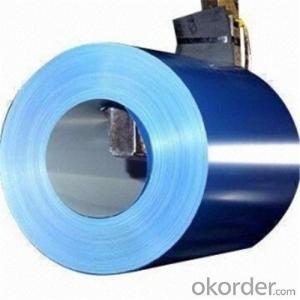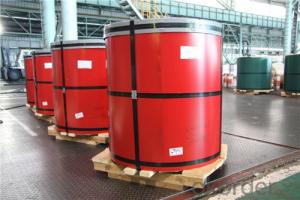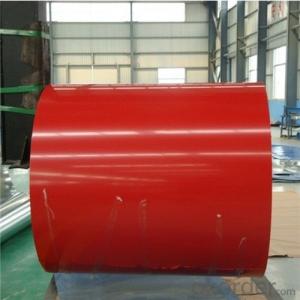BMP AZ60 Rolled Steel Coil for Sandwich Panel
- Loading Port:
- Shanghai
- Payment Terms:
- TT OR LC
- Min Order Qty:
- 45 m.t.
- Supply Capability:
- 30000 m.t./month
OKorder Service Pledge
OKorder Financial Service
You Might Also Like
Structure of BMP AZ60 Rolled Steel Coil for Sandwich Panel
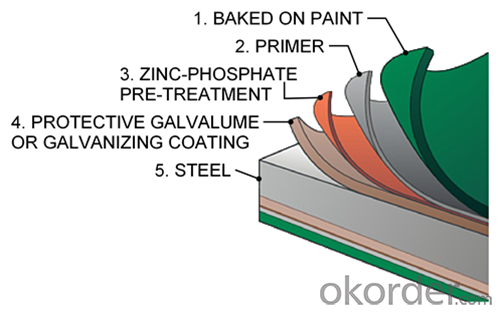
Description of BMP AZ60 Rolled Steel Coil for Sandwich Panel
Prepainted Rolled steel Coil is a kind of coated steel coil/sheet. With the cold rolled steel of different strength and thickness as substrate, it is produced through applying Al-Zn coat on both faces by hot dip process. In its coating, Al accounts for about 55%, Si 1.6%, while the remaining is Zn. Aluminum zinc coils enjoys both the physical protective feature and durability of Al and the electrochemical protective property of Zn. And its surface has bright silver color and regular embossed-like figure, which are highly decorative.
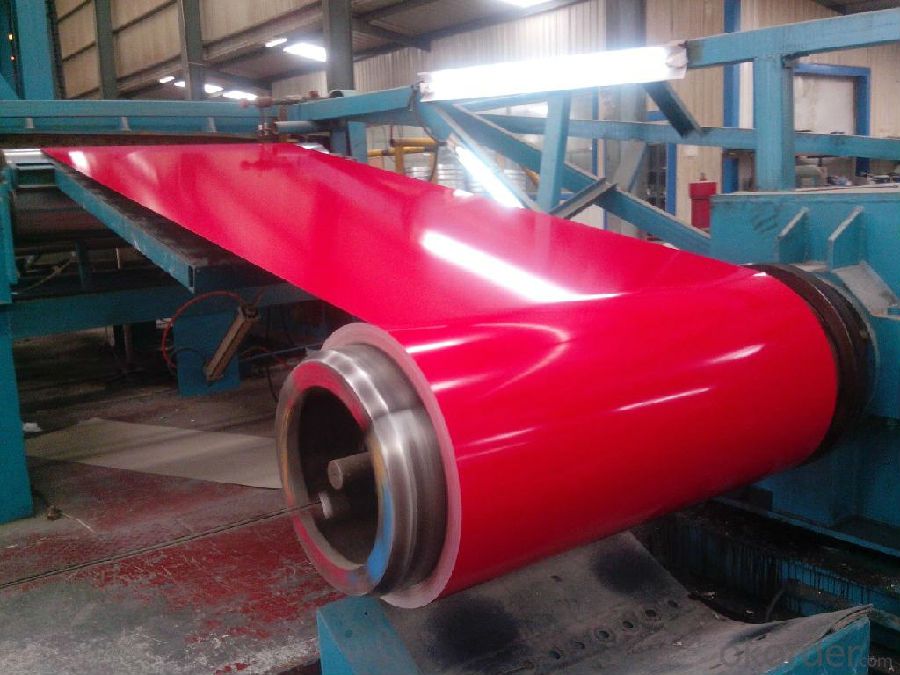
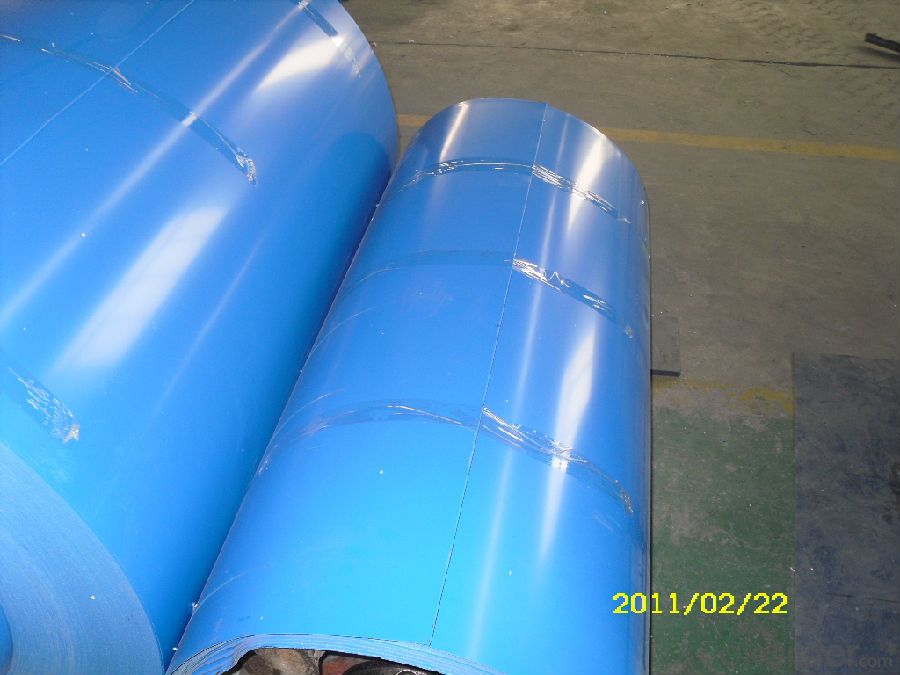
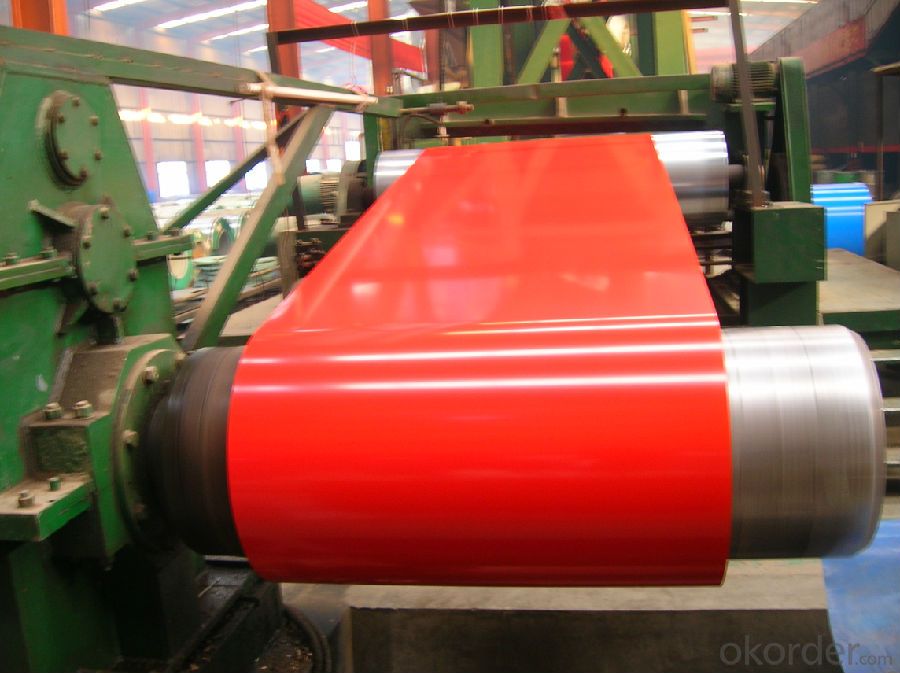
Main Feature of BMP AZ60 Rolled Steel Coil for Sandwich Panel
1.Corrosion resistance: It mainly depends on the aluminum protection. When the zinc being worn, the aluminum will form a dense layer of aluminum oxide, resist corrosion material to prevent further corrosion inside.
2. Heat resistance: Aluminum zinc alloy steel sheet has excellent heat resistance, can withstand high temperatures over 300 centigrade, and is similar with aluminized steel high temperature oxidation resistance. It often used in chimney pipes, ovens, fluorescent lighting device and the device cover.
3. Heat reflective: Galvanized steel plate heat-reflective high rate is twice as galvanized steel, often used to make insulation materials.
4. Economy: Because density of 55% AL-Zn is smaller than the density of Zn, so in the same weight and thickness of Galvanized zinc layer, aluminum-zinc steel plate is larger area more than 3% of galvanized steel sheet.
Applications of BMP AZ60 Rolled Steel Coil for Sandwich Panel
1. Construction and building: roofing; ventilating duct; handrail; partition panel;etc.
2. Electric appliance: refrigerator; washing machine; refrigerator; DVD;etc.
3.Transportation: oil tank; gas tank;pentane tank; road sign; etc.
4.Agriculture:barn; etc.
5.Others:vending machine; game machine; etc.
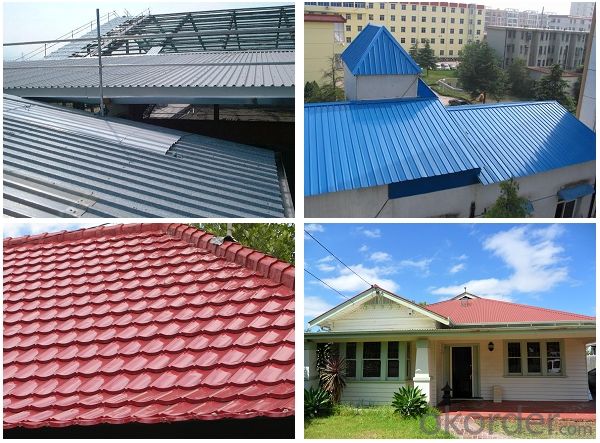
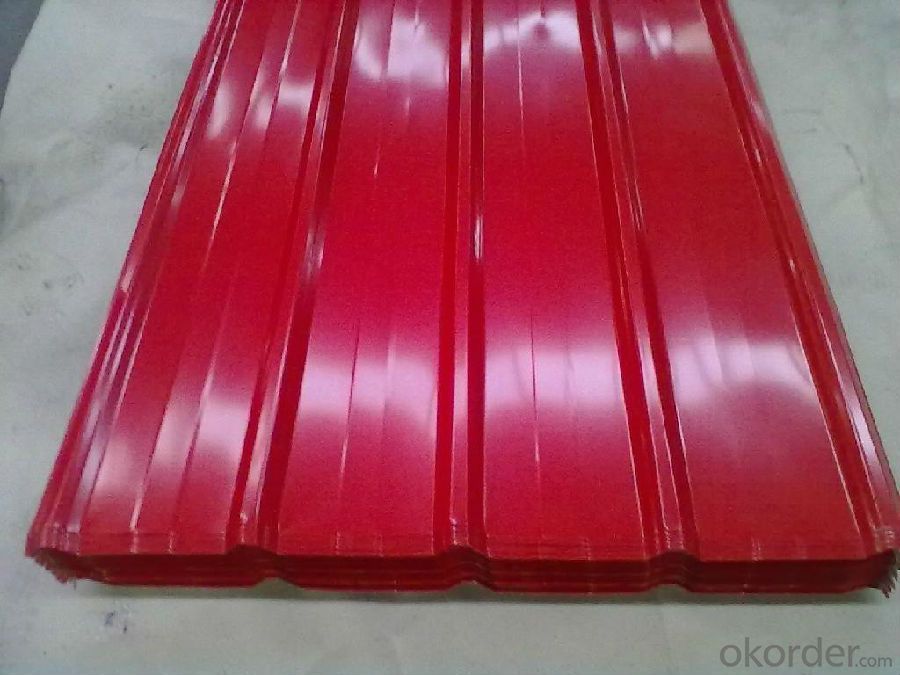
Specifications of BMP AZ60 Rolled Steel Coil for Sandwich Panel
Product | BMP AZ60 Rolled Steel Coil for Sandwich Panel |
Material Grade | SGCC / SGCH / DX51D+AZ, etc |
Thickness | 0.6-3.0mm |
Width | 500-1500mm |
Tolerance | Thickness: +/-0.02mm , Width:+/-2mm |
Zinc-coating | Z30-150g/m2 |
Technique | Raw material: Hot rolled steel coil --> Cold rolled_>hot dipped galvalume |
Surface | Dried, Chromated, Unoiled |
Spangle | Regular spangle , small spangle, zero spangle |
ID | 508MM 610MM |
Coil weight | 1-25MT |
Export package | Cardboard inner sleeves, Waterproof paper, galvanized steel covered and steel strip packed |
FAQ of Prepainted AZ60 Rolled Steel Coil for Sandwich Panel
We have organized several common questions for our clients,may help you sincerely:
1. What is the minimum order quantity ?
Our MOQ is 50mt for each size. And we will consider to give more discount if you make big order like 1000 tons and more. Further more, the more appropriate payment term your offer the better price we can provide.
2. How long can we receive the product after purchase?
Our delivery time is around 30 day after order confirmed.
3. How to make sure the quality of the order?
We have quality control team over 40 QC every link from raw material to final product we have strict quality test.
- Q: Nickel is ferro magnetic in nature. But when it is added with stainless steel, it makes stainless steel non-magnetic. What is the structural changes happened with the presence of nickel?
- Steel is magnetic because of the alignment of the spin in the electrons of the atoms in the crystaline matrix of the steel. Nickel atoms are not the same size as Iron atoms and Chromium atoms. by having several different sizes of atoms in the alloy, it prevents a uniform crystaline matrix from being formed. If you imagine a box of marbles that are all the same size, they will all settle into a regular pattern in the box. But a bunch of mismatched marbles will be jumbled together in irregular patterns. This prevents the magnetic properties of either element from asserting itself.
- Q: What are the different types of steel coil surface defects?
- There are several different types of steel coil surface defects that can occur during the manufacturing or handling process. Some of the common types include: 1. Rust: Rust is a common surface defect that occurs when the steel coil is exposed to moisture or oxygen. It appears as a reddish-brown discoloration on the surface of the coil. 2. Scratches: Scratches are superficial marks that can occur during handling or transportation of the steel coil. They can vary in depth and severity, ranging from light surface scratches to deep gouges. 3. Stains: Stains are another type of surface defect that can occur due to exposure to chemicals or other substances. They can appear as discolored patches on the surface of the coil, and may be difficult to remove. 4. Roll marks: Roll marks are impressions or indentations that can occur during the rolling process. They are caused by uneven pressure or misalignment of the rolls, and can appear as lines or patterns on the surface of the coil. 5. Edge wave: Edge wave is a defect that occurs when the edges of the coil are not perfectly flat. It can cause the edges to appear wavy or uneven, and may affect the overall appearance and performance of the coil. 6. Oil spots: Oil spots are surface defects that occur when oil or lubricants used in the manufacturing process are not properly removed. They can appear as dark spots or patches on the surface of the coil, and may affect the adhesion of coatings or paints. 7. Pitting: Pitting is a defect that appears as small, shallow depressions or pits on the surface of the coil. It can be caused by factors such as corrosion, uneven cooling, or impurities in the steel. 8. Holes: Holes are more severe surface defects that can occur due to a variety of reasons, such as corrosion, mechanical damage, or manufacturing errors. They can range in size and can significantly affect the structural integrity of the coil. It is important to address these surface defects promptly to ensure the quality and performance of the steel coil. Regular inspections, proper handling, and appropriate surface treatments can help minimize the occurrence of these defects.
- Q: How are steel coils inspected for oil or rust residues?
- Steel coils are inspected for oil or rust residues through a series of visual and physical examinations. First, the coils are visually inspected by trained personnel who closely examine the surface of the steel for any signs of oil or rust residues. They look for discoloration, stains, or any other abnormalities that could indicate the presence of contaminants. In addition to the visual inspection, various techniques are used to detect oil or rust residues. One common method is the use of solvent cleaning. A solvent is applied to the surface of the steel coil, and if any oil or rust residues are present, they will dissolve and become visible. This allows the inspectors to identify and remove any contaminants. Another method used for inspection is ultrasonic testing. Ultrasonic waves are sent through the steel coil, and any variations in the waves' reflections can indicate the presence of oil or rust residues. This non-destructive testing method provides a deeper analysis of the condition of the steel, ensuring a more thorough inspection. Furthermore, specialized equipment such as magnetic particle inspection or eddy current testing may also be employed. Magnetic particle inspection involves applying magnetic particles to the steel surface, which will gather around any areas with oil or rust residues. Similarly, eddy current testing uses electromagnetic induction to detect surface irregularities caused by contaminants. Overall, a combination of visual inspection and various testing techniques is employed to thoroughly inspect steel coils for oil or rust residues. These rigorous inspections ensure that the coils meet the required quality standards and are free from any contaminants that could compromise their performance or durability.
- Q: How does coil slitting work?
- Coil slitting is a process used in manufacturing industries to cut large coils of material, such as metal, into narrower strips of desired widths. The coil is unwound and passed through a set of circular blades that make precise cuts along the length of the coil. The blades can be adjusted to the desired width, and the process continues until the entire coil is slit into multiple smaller coils or strips.
- Q: What are the different types of steel surface finishes for coils?
- There are several types of steel surface finishes for coils, including hot rolled, cold rolled, galvanized, coated, and pickled and oiled.
- Q: How are steel coils coated for corrosion resistance?
- Steel coils are typically coated for corrosion resistance using various methods such as hot-dip galvanizing, electroplating, or applying a protective layer of paint or powder coating.
- Q: I mean 4 inch thick steel like was used in the WTC buildings, especially WTC 7 which did not get hit by a plane. Can carpeting, desk chairs, water coolers and dry erase boards burn hot enough and long enough to melt steel that is normally made in a blast furnace?
- Steel loses strength as it is heated and will fail long before it melts. A mild steel that starts out at 100 degs F with an allowable stress level of 20,000 psi will be down to only about 2000 psi at 1000 degrees. As to fireproofing for steel. It doesn't have an unlimited life. In fact most has only a 2 to 4 hour rating and that is determined in ideal conditions in a laboratory. The idea is to give firefighters time to get everyone out of the buidling.
- Q: How are steel coils inspected for edge quality?
- Inspectors use a combination of visual inspection and non-destructive testing methods to assess the edge quality of steel coils. During visual inspection, trained inspectors carefully examine the entire length of the coils to detect visible defects like cracks, chips, or uneven edges. Non-destructive testing methods, including ultrasonic testing and magnetic particle inspection, are also utilized to uncover any hidden defects or imperfections in the edges of the steel coils. Ultrasonic testing employs high-frequency sound waves to identify internal flaws or discontinuities in the steel, while magnetic particle inspection utilizes magnetic fields and particles to detect surface or near-surface defects. Both visual inspection and non-destructive testing methods are vital in guaranteeing the quality of the steel coil edges. Manufacturers can identify and resolve any defects or imperfections by conducting these inspections, thereby ensuring that the coils meet the required quality standards.
- Q: Where can a find a steel scrubber. Its great to clean cooking vessels. Would be great if someone gives me an idea. I did not find it at CVS, but was in a hurry, will try again tomorrow.
- Are you talking about steel wool? You should be able to find that at Wal*Mart or Target. If they don't carry it, I would recommend looking for a kitchen supplies store in a phonebook.
- Q: A steel rod AISI 1040 has the ultimate tensile strength Sut of 113 kpsi. Determine the rotating bending specimen's endurance limit S'e at 10 to the 6th cycles.
- Aisi 1040
Send your message to us
BMP AZ60 Rolled Steel Coil for Sandwich Panel
- Loading Port:
- Shanghai
- Payment Terms:
- TT OR LC
- Min Order Qty:
- 45 m.t.
- Supply Capability:
- 30000 m.t./month
OKorder Service Pledge
OKorder Financial Service
Similar products
Hot products
Hot Searches
Related keywords
